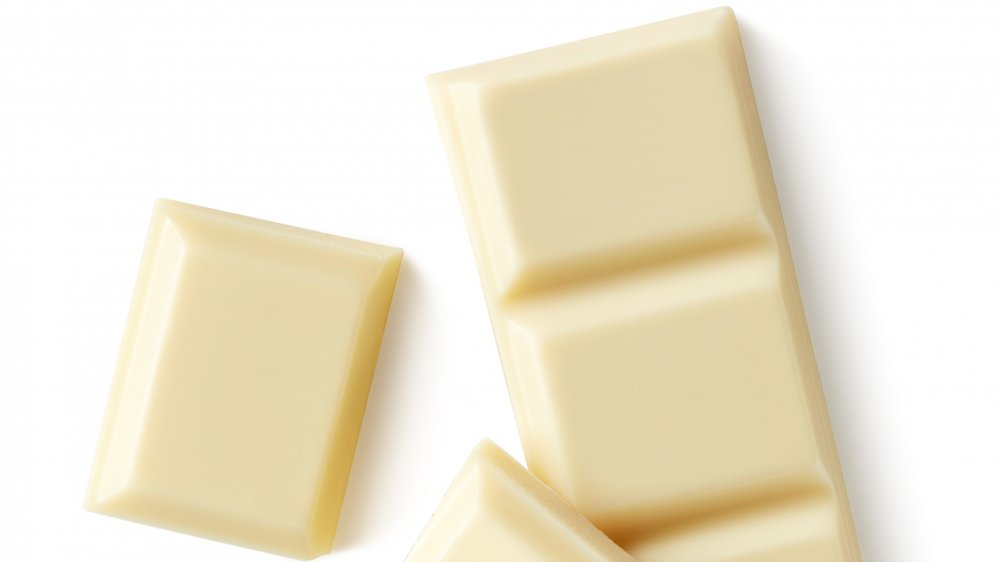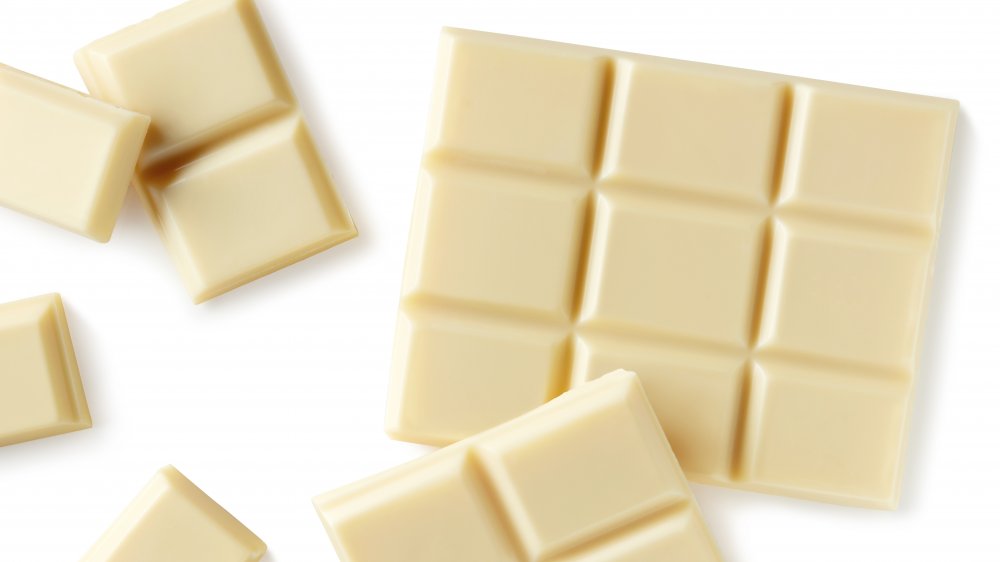Here's Why White Chocolate Is So Expensive
White chocolate belongs to the world of extremes. People either tend to absolutely love it or hate it with a passion. As per the Huffington Post, white chocolate is often looked at like an imposter in the world of chocolate because it is, in fact, very different from regular chocolate and even tastes quite unlike its peers.
When it comes to making white chocolate at home, it isn't too tricky. All you need is sugar, powdered milk, and cocoa butter to prepare your very own batch of white chocolate. In a Reddit post that had commentators ruminating over white chocolate, a Reddit user had the perfect answer when asked for their take on white chocolate. They wrote, "[It's] just like 'regular' chocolate. Some of it's good. Some is not. Most isn't even chocolate."
But if you're not one for home confectionery, you have probably noticed how pricey white chocolate can be when you go to purchase. Here's why that is, and what you should know about it.
White chocolate is more expensive to produce
White chocolate is far more expensive than dark chocolate as far as production costs are concerned. This is because white chocolate has more cocoa butter than its peers (via The Gourmet Chocolate of the Month Club). White chocolate then basically relies on its cocoa butter content for that chocolatey flavor and also has other ingredients like sugar, lecithin, milk solids, and more. However, it doesn't have chocolate liquor. Simply put, the fact that its production costs are higher makes it pricier than other types of chocolate.
As per ChowHound, white chocolate often attracts contrasting opinions from chocolate lovers and has been perceived as lacking quality for a long time. However, that has been changing on account of the fact that chocolate manufacturers are working harder on making white chocolate stand out in the market. According to Delish, white chocolate can be considered a derivative and isn't fake chocolate as some of its critics like to constantly say. Plus, it's a great add-on to desserts when you want something to complement the overall flavor without overtaking the other ingredients in the dish.

